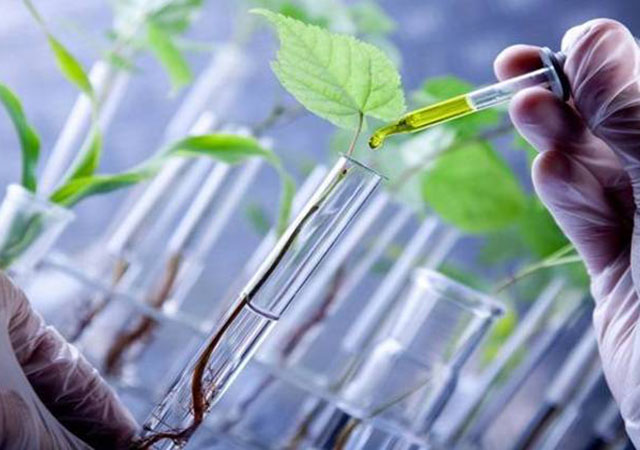Shumbeyi Muzondo Correspondent
Biotechnology is biology’s fastest growing discipline prompted by the ever-increasing demand for food and fuel in a cleaner and greener environment.
In general, biotechnology encompasses a wide array of technologies that use living systems to produce useful products and services.
Integrating biotechnology into the agricultural system is critical to better use limited resources, increase agricultural yields and decrease the detrimental effects of using pesticides and chemical fertilisers.
Agricultural biotechnology is a field of agricultural science which uses cell and molecular biology tools to improve genetic makeup and agronomic management of crops and animals.
There are many biotechnology techniques employed by scientists and researchers in this discipline which include genetic engineering,marker assisted selection,hybridisation, plant tissue culture, biofertiliser technology, artificial insemination technology,plant and livestock disease diagnostics as well as vaccine production.
The use of these biotechnology tools in Zimbabwe has the potential to improve the livelihoods of about 7,6 million people living in the rural areas and depending mainly on agriculture.
Recombinant DNA technology
This is a technology in which a plant or animal can receive genetic material (DNA) from a different organism to improve its attributes or make it perform new functions.
Genetically Modified Organisms (GMOs) include agricultural crops that have been genetically modified for resistance to pests, diseases or environmental conditions. For example Bt cotton is genetically modified cotton that incorporates a gene derived from a bacterium Bacillus thuriengiensis. Bt cotton is resistant to attack by the American bollworm, a major pest on cotton.
Other approaches may entail conferring to a plant resistance to chemical treatments (eg resistance to herbicides).
Alternatively the production of a specific nutrient or pharmaceutical product may be performed in a given GMO.
Despite having many benefits, GMO development encounters a number of obstacles including the high cost of creating one variety, the lengthy period to regulatory approval (usually 10 years at the least) and widespread public opposition.
Zimbabwe has not yet commercialised any GMOs.
Hybridisation/Crossbreeding
Hybridisation involves combining the qualities of two organisms of different breeds, varieties, species or genera through sexual reproduction to impart a new character that would increase its yield. There are a number of companies in Zimbabwe which produce and distribute hybrid seeds including hybrid maize seed, cotton seed, wheat, soya bean, barley, sorghum and groundnut seed.
Biofertiliser technology
Biofertilisers are ready-to-use live formulations of beneficial micro-organisms. They are 100 percent organic and are applied to the seed, root or soil.
Biofertilisers can reduce the excessive use of chemical fertilisers, enrich the soil with those micro-organisms which produce organic nutrients for the soil and help combat diseases as well as provide the farmers with a cheaper source of fertiliser.
Marker assisted selection/ or molecular breeding
Marker assisted selection is a cutting-edge technology among today’s plant biotechnology companies. Plant breeders can use this technique to locate and assemble desirable traits to speed up the process of developing new commercial hybrids.
Unlike GMOs, new crop varieties produced by marker assisted selection are spared the regulatory trials and the public opposition mainly because the plant’s natural genetic boundaries are not crossed.
Some seed houses and research institutions in Zimbabwe have used this technique to develop improved crop varieties of maize, millet, sorghum and legumes that can withstand the adverse effects of climatic change.
Tissue culture
The innovative solution to low yields for cassava, potato and sweet potato growers in Zimbabwe is tissue culture technology. Tissue culture, commonly referred to as micro-propagation, is a propagation tool where the cultivator grows tissue or cells outside of the plant itself in an artificial environment.
It can produce millions of disease-free plantlets from high yielding varieties. Instead of planting the cut pieces from the traditional matured plants or diseased seeds, farmers can plant virus-free and high vigour plantlets from high yielding varieties that are produced using tissue culture technology.
Harare Institute of Technology (HIT) is one of the institutions currently using tissue culture techniques to produce oyster mushroom spawn for commercial purposes. HIT has also extended its services by offering mushroom training courses.
Artificial insemination technology
Breeding technology has grown leaps and bounds over the last few decades with artificial insemination becoming one of the technologies adopted by many dairy and beef farmers for breeding the next generation of farm animals like cows and pigs.
Artificial insemination is the process of collecting sperm cells from a male animal and manually depositing them into the reproductive tract of a female. It offers the opportunity to use semen from the best bulls to build up carcass quality and weight gain in cattle.
Local farmers, with the assistance of a good breeder or knowledgeable inspector, can use this key tool to improve exports, wealth creation and nutrition for families.
Diseases Diagnostics and Vaccines
Farmers in Zimbabwe raise mainly cows, goats, chicken and sheep. Many diseases that reduce productivity for these farmers can be prevented by observing good hygiene, management and nutrition practices.
Biotechnology techniques for disease diagnostics and vaccine production are key tools for effective disease management.
These techniques compared to serological methods (blood tests that can diagnose various diseases) are performed faster, with a greater degree of accuracy, precision and reduced labour requirements.
Some local research institutes can develop vaccines and offer molecular diagnostic services for effective disease management which then translates to producing healthy livestock.
This presentation is but just a glimpse of the contributions of agricultural biotechnology to our society.
There are a lot more products and services on offer while some are still under development.
For further information please do not hesitate to contact the author at [email protected] or [email protected] Shumbeyi is a Lecturer in the Biotechnology department at the Harare Institute of Technology


